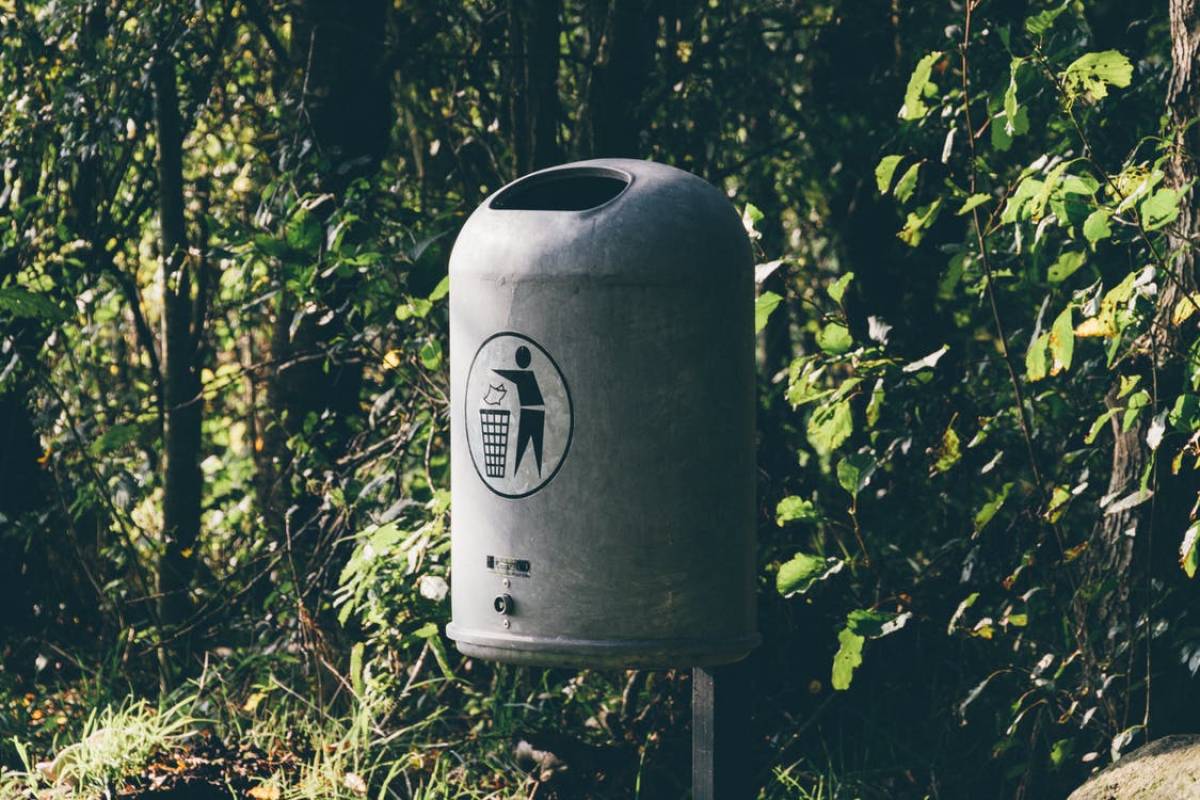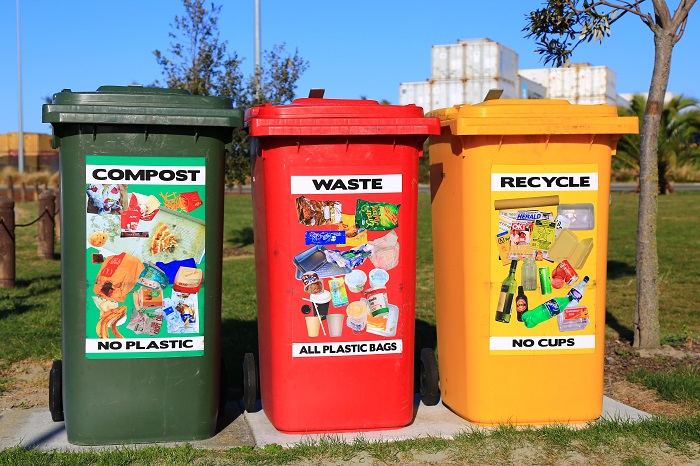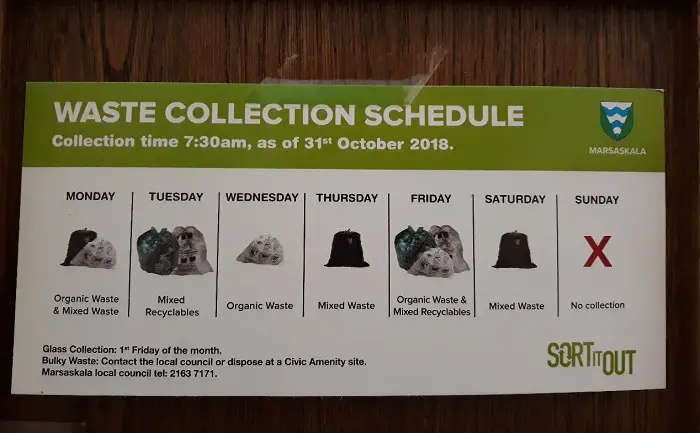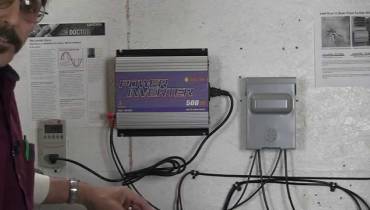8 Tips and Strategies for a Better Waste Management Plan

Today, it is vital to implement proper waste management and recycling as a resource management structure in any business. This is now considered to be a best practice for effectively managing waste and resources at all commercial and institutional buildings, including office buildings, stores, hotels, restaurants, and even schools.
This resource management system should be consistent with specific local, global, and national management frameworks, geared towards goals like zero waste and sustainable materials management.
According to the United States Environmental Protection Agency (EPA), managing and reducing wastes offers an often-overlooked opportunity to improve an organization’s sustainability, prevent greenhouse gas emissions, and reduce costs.
By effectively managing your organization’s waste, you can not only make a major contribution towards shifting the planet towards a sustainable, cleaner and greener future, but also save disposal costs and stretch your budget just that little bit further. Any step on the waste management path, no matter how small, is one that contributes to continuous improvement.
If you are wondering how to effectively plan and effect proper waste management in your organization, the foremost important goal is to generate less in the first place. Waste prevention offers the greatest environmental benefits and cost savings and should, therefore, be the foundation for your waste management plan. Then, you can go further and manage and recycle whatever less waste you produce.
And when it comes to managing your organization’s waste, EPA says the first step is tracking the amount of wastes your organization generates, because as the old adage goes, “you can’t manage what you don’t measure.”
Once you know what you are dealing with, you can formulate an appropriate strategy to manage the waste, with an emphasis on the 3Rs (reduce, reuse, recycle), per the United Nations Environment Programme’s (UNEP) call for the development and enforcement of comprehensive waste management policies, strategies, laws, and regulations in response to the challenges presented by uncontrolled waste production.
Remember, inadequate and inappropriate handling of waste material poses serious public health, safety risk, and can have a significant adverse impact on the environment, and your own bottom line.

Below are more tips and strategies you can use to create an improved waste management plan for your business.
1. Choose Sustainable Materials
According to the Center for Sustainable Materials at Rutgers, The State University of New Jersey, sustainable materials are those materials used throughout our consumer and industrial economy that can be produced in required volumes without depleting non-renewable resources and without disrupting the established steady-state equilibrium of the environment and key natural resource systems.
Focus on buying and using sustainable materials in your organization. As a part of this plan, you can opt for material such as bamboo, wood, clay, stone, sand, wool, linen, straw, coconut, and beeswax.
2. Reduce and Reuse
As already mentioned, put an emphasis on the 3Rs in your waste management plan, which include reducing and reusing your waste as much as you can.
For example, instead of throwing food waste in the dustbin, you can use this waste for compost production. So, it is very important to recycle and reuse waste.
3. Lay Out Your Plan Clearly
A plan is an important framework that helps in identifying a starting point, objective, specific way to reach an objective, and finally recognizing the progress.
Have a clear and well-thought-out waste management plan and policies in place. Write them down to guide you and everyone in your organization to deliver sustainable improvements.
4. Monitor Your Waste Management Systems Closely
Actively monitor your waste management systems and adjust them as necessary to improve their efficiency. This is possible through identifying your specific waste management requirements, spotting recycling opportunities, discovering the best ways to reduce waste generation, and keeping a close eye on disposal methods.
5. Embrace a Joint Approach to Waste Management
A joint approach may include embracing initiatives like public-private partnerships or community-led initiatives for effective waste disposal methods in your area. This is a very effective approach for the management that can also boost your business or organizations’ image and reputation in your community.
The most important purpose of this approach is to encourage sustainable partnerships with local community members, governments, residents, as well as local businesses, entrenching a strong waste management and recycling culture.
6. Label Waste for Proper Collection and Disposal
Correctly label waste disposal bins in your organization for easy identification so that people do not make the mistake of putting the wrong waste in the wrong bins.
And always implement regular and orderly waste collection to ensure waste does not overfill and pile up and boost efficiency.

Waste bin containers should also be of the right size and emptied regularly and on time to avoid overflow, foul odor, and other such hazards.
7. Comply with Set Guidelines and Responsibilities in Your Area
When it comes to waste management, businesses and institutions have specific waste management responsibilities and guidelines in most jurisdictions, legal and otherwise. It is very important to be well versed with the responsibilities and guidelines specified for your type of business in the area your business operates.
For example, in some places, you will be required by city or municipal governments to dispose of waste or sorted it in a particular way. Learn about things like this and comply with all the requirements and guidelines faithfully.
Get compliance permits from the authorities as necessary to operate legally and so that you have proof of your compliance with set rules and regulations. If you do not comply with the set rules in your area, you could end up paying huge fines or penalties. So, stay up-to-date on set guidelines and compliant with all the rules.
8 Get Professional Waste Management Services
Oftentimes, you will need professional waste disposal and management services in your business. Don’t shy away from hiring professional waste management service provides where you need it.
Reputable professionals can come in very handy. For example, they are authorized for transportation of waste from business premises to the processing plant, which can be safer and more efficient as the pros are trained to handle such tasks.






















